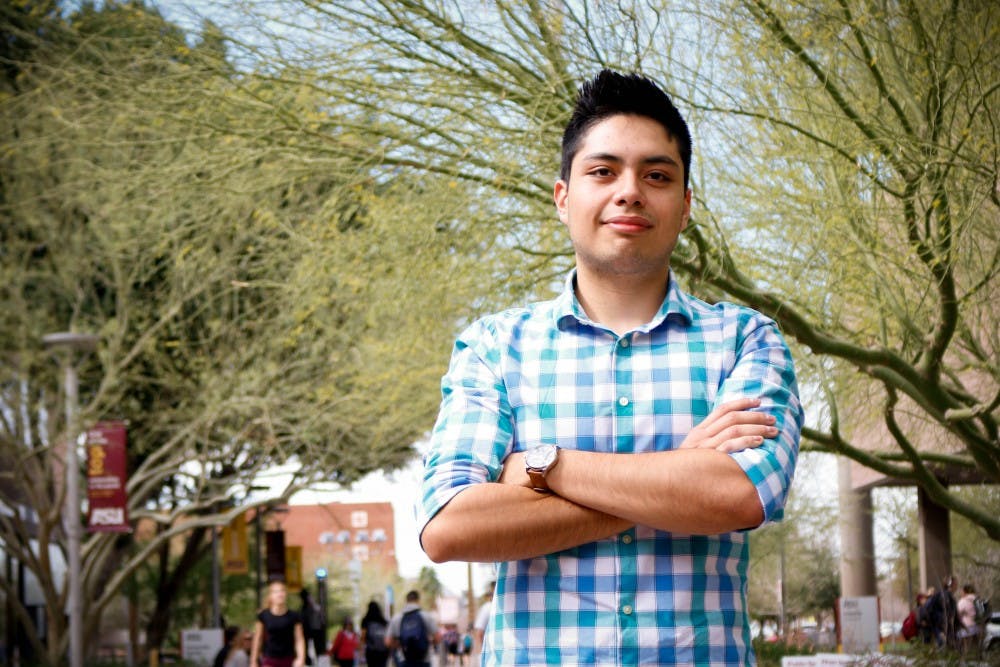The Arizona Supreme Court ruled on Monday that Arizona schools can no longer grant in-state tuition to students covered by the Obama-Era Deferred Action for Childhood Arrivals program.
Under existing federal and state laws, the Court unanimously agreed with the Arizona Court of Appeals ruling.
DACA students deserve to be treated like other Arizona residents, especially when they are trying to get an education to better themselves and their futures as American citizens.
Arizonans should reach out to their representatives and voice their opinions on the issue, especially if they disagree with the ruling, because it is important that policy makers work on behalf of the citizens.
"I'm very disappointed with the ruling," said ASU public policy senior and DACA recipient Oscar Hernandez. "I understand that the Supreme Court is trying to abide by the laws of Arizona, but these are based on Prop 300, which was passed when DACA didn't exist."
There are currently more than 2,000 DACA recipients who attend a college or university in Arizona and pay in-state tuition, and there are over 200 at ASU. As a result of the new ruling, their tuition prices will be significantly increasing.
"We're a very small population that's being marginalized," Hernandez said. "Educating ourselves is the only way we can help ourselves."
On average, in-state students pay $9,834 per year at ASU, while out-of-state students pay $27,618. This means that after this ruling, DACA students will be paying almost triple what they do now despite legally residing in Arizona.
The citizens of Arizona should show support for DACA students in order to encourage law and policy makers to work to change the current laws that will prohibit DACA students from receiving in-state tuition costs.
Immigrants make America great, and the government should be encouraging them to go to school, not making it harder for them to do so.
In 2016, #WithDACA became a trending hashtag recipients used to broadcast their achievements which were possible through the program, many of which benefitted the communities they lived in.
ASU President Michael Crow has shown a consistent commitment to the DACA students in Arizona.
In a statement from September 2017, Crow said, "I made clear ASU’s intention to honor its constitutionally mandated mission to provide a quality education to Arizona’s college bound students — all of them ... I stand by that commitment, including my promise that if DACA is eliminated, we will rise to the challenge, just as we did before DACA existed by finding resources for these students from private sources."
After the court ruling on Monday, Crow again showed support for the DACA students.
Crow said in a statement to The State Press that the court decision "does nothing to alter our steadfast commitment to making higher education a reality for all Arizona high school graduates, including those who have DACA status."
However, there is only so much that the University can do to help DACA students because government interference makes it hard to allocate resources for their well-deserved college education.
"You look at the people who attack us, they say you have to work hard to get your citizenship," Hernandez said. "Educating ourselves is the only way we can help ourselves, yet here they come telling us, 'No, we don’t want you to do that.' Its very hypocritical."
It is critical that the Arizona's state government takes a stand to help these students, because under President Trump, the federal government hasn't offered much support.
In order to get the support of the state government, citizens must work together to voice their opinions and get out and vote.
DACA students have every right to attend school at in-state tuition prices, just like many other immigrant students. For those who want to enact change and help these students, there are multiple initiatives and organizations that are working to provide support.
"What people have to realize is that the law is made by the majority," Hernandez said. "We have DACA, which gave us a way to fight for equal rights and education."
The University has made a commitment to DACA students, and peers should join the cause in order to show support for the 200 recipients who attend ASU.
"Do not give up," Hernandez said. "Get involved and get connected. Build your community. They are the ones who will be there for you."
Reach the columnist at adunn11@asu.edu or follow @adrienne_dunn on Twitter.
Editor’s note: The opinions presented in this column are the author’s and do not imply any endorsement from The State Press or its editors.
Want to join the conversation? Send an email to opiniondesk.statepress@gmail.com. Keep letters under 500 words and be sure to include your university affiliation. Anonymity will not be granted.
Like The State Press on Facebook and follow @statepress on Twitter.




